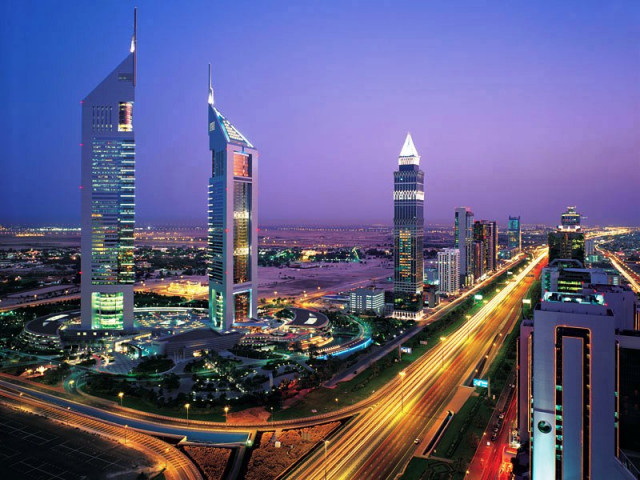Cold shiny cities that ignore their people
Western models of cities as engines of growth aren’t always good.

The philosophy that led to that kind of planning raises questions for people like Dr Nausheen H Anwar, an assistant professor of urban studies at the Institute of Business Administration. She focused on thinking beyond cities as engines of growth at the NED University 7th seminar on urbanisation and secondary cities on Saturday. Her meaty paper presentation was a refreshing critique of the way we approach urban planning in Pakistan as it tends to idealise western cities.
The problem is that we tend to blindly valorize cities (think Dubai), and their modernisation as a result of an outlook that developed after WWII.
In the Alpha Beta Gamma pecking order, cities are taken as command and control points and secondary cities occupy the lower rungs. Think of Karachi versus Sukkur or Rohri. In this kind of thinking, participation in globality is championed. Failure to survive leads to stagnation.
Thus urban planners have over a long time, since the 1960s, had a corporate vision of cities and overlooked their political, economic and more importantly, colonial legacies. Anwar gave examples of language used for local government policy by the World Bank that almost sounded like something out of portfolio management. Even the Asian Development Bank’s ideas were couched in the same language. Words like efficiency, productivity, competitiveness surface.
It was believed that a successful city had infinite growth or celebrates Western growth. Everything was viewed through a narrow prism of technological efficiency. “But then, the focus on economics [ignores] critical concerns,” she pointed out. What about cities as producers of citizenship?
The countryside should not just be seen as a “languishing hinterland”, she stressed.
Published in The Express Tribune, April 2nd, 2012.


















COMMENTS
Comments are moderated and generally will be posted if they are on-topic and not abusive.
For more information, please see our Comments FAQ